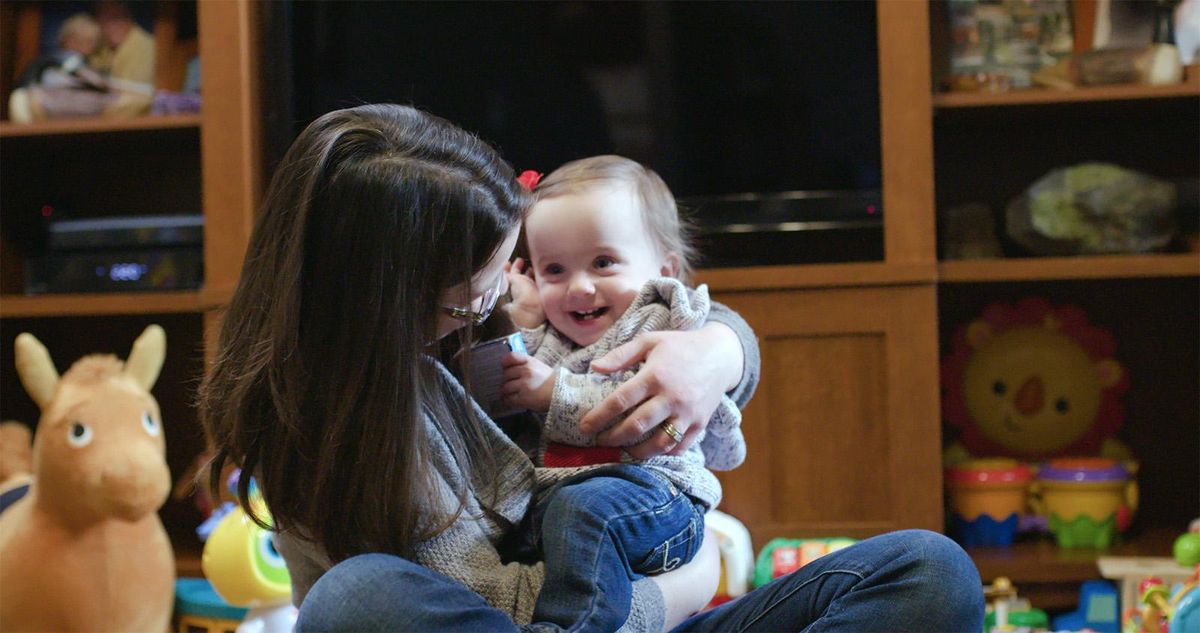World’s first device for premature babies with heart defect gains FDA approval

CHICAGO – The Food and Drug Administration has approved the world’s first device to treat premature babies with a life-threatening heart defect, without major surgery.
The device, which is smaller than a pea and made by Abbott Laboratories, can be implanted in babies weighing as little as 2 pounds. It’s designed to treat babies with patent ductus arteriosus – one of the most common heart defects in premature infants.
Babies with the condition have an opening between two blood vessels leading from the heart. All fetuses have the opening, which allows oxygen-rich blood from the mother to circulate throughout the fetus’ body. But in most babies, that opening closes by itself shortly after birth. In some cases, especially in premature babies, the opening doesn’t close, which can make breathing difficult.
About 1 in 5 low birth weight babies have the condition, according to Abbott. That’s about 12,000 infants a year.
Abbott’s device, called an Amplatzer Piccolo occluder, can seal the opening. It’s inserted through a small incision in the leg and guided through vessels to the heart. The device then stays in the patient’s body permanently with the body healing around it.
Companies have made similar devices to treat the condition in older children for years, but Abbott’s device is the first specifically approved for premature babies. Now, many babies born with the condition simply live with it until the opening closes on its own or until they’re older and can use one of the larger, already available devices. If the opening is small, people can sometimes live with it and never need treatment.
But babies with larger openings, who are particularly sick, are treated with medication and sometimes with surgery. Not all babies, however, respond to medication, and surgery may be too high-risk for some. And staying on a ventilator for a long period of time, in a wait-and-see approach, can carry its own risks.
“This basically gives physicians options,” said Rick Olson, Abbott divisional vice president for product development, of the new device, which received the FDA’s approval on Friday.
Though Abbott’s device is the first approved by the FDA to treat the condition in premature babies, doctors have already been using several other devices on small babies in a similar way, off-label – meaning the devices were approved for other purposes, said Dr. Alan Nugent, director of cardiac catheterization at Lurie Children’s Hospital.
Still, having a device specifically approved by the FDA for treating the condition in premature babies could make the procedure easier to perform and more common, Nugent said. Lurie was not among the hospitals that participated in a trial of the device leading up to FDA approval.
Crissa Felkner, of Lancaster, Ohio, credits the device with saving her daughter’s life.
Her twins, Judah and Irie, were born 13 weeks early in 2017. It soon became clear that Irie had the opening in her heart. She weighed less than two 2 pounds at birth and was on a ventilator.
Doctors’ attempts to take her off the ventilator failed – until she got the device.
Three days after she received the device, doctors wanted to try again to take her off the ventilator. Felkner and her husband were reluctant, not wanting to see their daughter struggle for air. But doctors were able to get her breathing without it. Less than two months later, the Felkners took the little girl and her brother home.
“I really do not think I would have brought both of my twins home if it wasn’t for the device,” Crissa Felkner said. Irie received the device as part of a trial that involved 50 babies at eight hospitals.
Felkner doesn’t anticipate that Irie will need any more heart procedures, though she continues to be monitored.
She said Irie and her brother are now normal toddlers, saying a few words, walking and playing. “You would never know they were premature babies, either one of them,” Felkner said. “There are no limitations for Irie.”
Last year, the FDA also approved another Abbott device for babies’ hearts, a mechanical heart valve designed to treat infants in need of a mitral or aortic valve replacement.